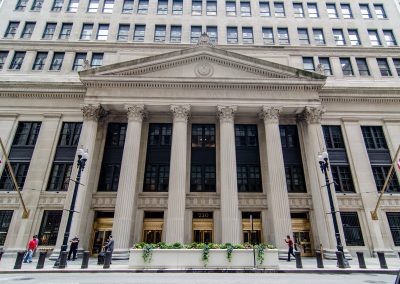
Reform Is Driven by Rising Elites
From my article in Palladium Magazine.
America’s failures, like those of any society, have deep roots. They can be traced to some fundamental misunderstanding of reality. In our society, one of these is a dissonant evaluation of elites. America’s elites are seen to be simultaneously all powerful and completely incompetent. When great and terrible events come—natural or man-made—politicians, social media magnates, university presidents, billionaires, and others are ascribed agency over events, and we expect that they should use it. Why haven’t they done everything in their power to prevent crisis? Yet when elites gather together to discuss how best to act, their forums become synonymous with malice and conspiracy. Blame assigned, the ‘realist’ then proposes the elites be replaced, and the ‘idealist’ that we shouldn’t have elites at all. The root misconception unchallenged by either.
The term “elites” has many connotations today, but early sociologists such as Max Weber or Vilfredo Pareto used it in a technical sense: the group of people that has a preponderant influence on society. They are those with power. A different use of the term “elite” can be found in phrases like “elite athlete,” which indicate someone at the top of a domain of skill. The two groups certainly overlap, but imperfectly. Narrowing our focus on the elites who endeavor to influence society, we notice that the standards by which success, and thus status as an elite, is measured are not universal. They vary with time, government structure, and other circumstances. Recognizing elites and navigating their world requires discerning the standards in play.
Those elites who exercise influence may be called the ruling class even though they are certainly not confined to government positions. The idea of an elite class implies selectivity and outsized social influence. The distribution of power in society probably looks something like the Pareto distribution—though not quite the same, because in a Pareto distribution there would be a single most powerful person who would be radically more powerful than the next most powerful person. Though this can be the case, societies can also be oligarchical, and in such systems, power levels between elites are much more evenly distributed. Discrepancies aside, in all cases, the distribution of power in the total population does roughly follow a Pareto curve. Within the elite cluster, however, it depends on the shape of the society in question.
The Role of Elites in Society
Many view elites as by nature playing an adversarial role, the details in-line with the framework of one’s political views. While this is understandable, and many charges are levied rightfully in spirit if not in letter, it is too easy to confuse elite failure or dysfunction, even widespread, with a case against elites per se. In a time of failing institutions and frequent crises such as ours, it would not be right to exonerate elites from responsibility, perhaps quite the contrary. However, it is also worth noting that elites are not solely a negative influence on society, and in fact serve several crucial roles to its functioning. Without a functioning elite, we could not have a functioning society.
A society is best thought of as an ecosystem of mutually dependent institutions. Where those institutions are abundant, well-designed, and functional, we will find a flourishing society and civilization. Where they are few, poorly designed, or dysfunctional, we will find a broken and decaying society. Throughout history, the best institutions outperform others by many orders of magnitude—functional institutions are the exception. It is better to have one functional institution than one hundred dysfunctional ones.
Elites are necessary to marshal the requisite resources, talent, and enthusiasm to found new functional institutions and refound old ones. Nobody else has the influence and independence to do so. Founding an institution is very hard, founding a functional one much harder, and refounding a dysfunctional one perhaps the hardest of all. The difficulty is not just technical but also political. These tasks are hard enough for elites, much less you or me, and by succeeding at them, elites help create a flourishing society that benefits everyone. Furthermore, founding important functional institutions tends to rightfully make elites of those who found them. Without elites, we would have far fewer and far less functional institutions. A society without elites would necessarily decay and get worse for everyone in it.
Read the rest here.





